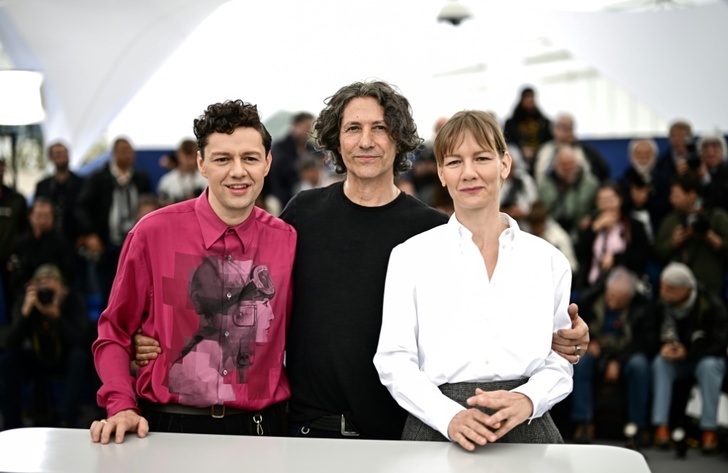A powerful Auschwitz-set psychological horror film, "The Zone of Interest", was emerging as the hot ticket of the first week at Cannes, with reviews on Saturday near-unanimous in praise.
A "bone-chilling Holocaust drama like no other", The Hollywood Reporter said of the "audacious film", concluding that British director Jonathan Glazer "is incapable of making a movie that's anything less than bracingly original".
The German-language film, which comes a decade after the 58-year-old Glazer's last feature, "Under the Skin", is set within the Auschwitz complex and on the other side of the camp's walls, and focuses on the family of Rudolf Hoess, the longest-serving commandant at the Auschwitz camp, who lived a stone's throw away.
Yet they carry on with normal life, and Hoess's wife (played by Sandra Hueller) even jokes chillingly that she is the "Queen of Auschwitz" for the idyllic existence they have.
"Glazer just delivered the first instant sensation of the festival", cheered Variety magazine, noting the six-minute standing ovation after its premiere on Friday.
The horror of the camp is not shown, but incessantly present in sound -- trains, incinerators, gunshots and screams -- and in a few details: the characters' disgust at the unbearable smell, ashes scattered in soil, blood washed off boots.
For The Guardian, the film pulled "the banality of evil into pin-sharp focus", but while it praised its "undoubted power" it "might well revive the debate about conjuring slick movie effects from the horrors of history".
Variety called it "a remarkable film -- chilling and profound, meditative and immersive, a movie that holds human darkness up to the light and examines it as if under a microscope".
French reviewers were equally impressed, with Le Figaro calling it "a chilling film with dizzying impact" and Liberation saying it could well take home the Palme d'Or on May 27.
There are 21 films competing for the top prize at Cannes, including several previous winners such as Japan's Hirokazu Kore-eda, Germany's Wim Wenders and two-time British winner Ken Loach.
eab/er/js
© Agence France-Presse
Your content is great. However, if any of the content contained herein violates any rights of yours, including those of copyright, please contact us immediately by e-mail at media[@]kissrpr.com.
Source: Story.KISSPR.com

